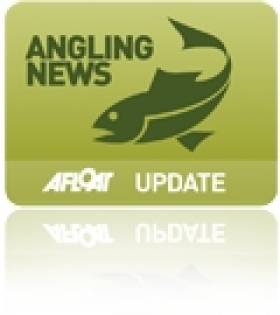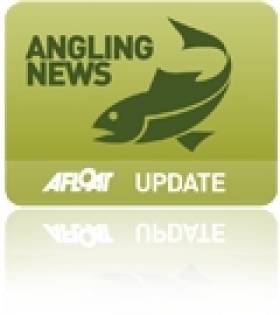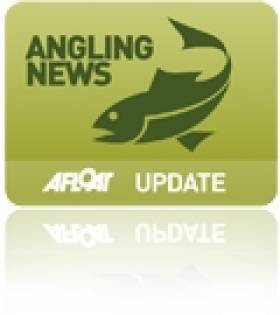Displaying items by tag: Atlantic Salmon Trust
New Three-Year Project to Study Salmon's Life Cycle
#Angling - The start of a new three-year strategy to study the life cycle of the salmon will be a priority for the Atlantic Salmon Trust (AST) in 2013.
Writing in The Irish Times yesterday, angling correspondent Derek Evans highlights the key points from the trust's newsletter review of 2012, which discusses the 'Three Pillar' approach identified at last month's Ocean Silver Conference.
Under the first pillar, the 'ocean zone', the AST will identify migration routes and work with relevant authorities to ensure salmon movements are monitored and that fish are given safe passage.
The second pillar comprises coastal waters, whereby threats to salmon migrations such as pollution, climate change and renewable energy projects will be tackled.
'The Freshwater Environment' is the third pillar, which will raise a more holistic awareness of salmon fisheries, from river slows to the role of small streams and the potential benefits of stocking.
Salmon stocking will be the subject of a major conference hosted by the AST in tandem with IBIS in Glasgow this coming November, as previously reported on Afloat.ie.
The Irish Times has more on the story HERE.
Major Conference on Atlantic Salmon Stocking Announced
#Angling - The Atlantic Salmon Trust will team with IBIS (Integrated Aquatic Resources Management Between Ireland, Northern Ireland and Scotland) to host a major conference at the Marriott Hotel in Glasgow on 27-28 November 2013.
Leading speakers will be invited to discuss all aspects of salmon stocking at the conference, titled 'Boosting salmon numbers: is stocking the answer or the problem?'
Over two days, the conference will examine in depth the potential role of stocking in restoring, sustaining and enhancing salmon populations and fisheries.
In a statement, IBIS said: "We are bringing together experts on salmon science and management - including those with direct experience of stocking - to join with anglers and fishery managers in exploring the potential for salmon stocking, including its effectiveness and risks.
"We'll look at such issues as: How does stocking affect numbers of returning adults? Is it cost effective? What is the role of genetics and climate change?
The presentations will range from the underlying science to case studies and examples of best practice."
The conference is fully financially supported by IBIS. Attendees will only be asked to pay for their own travel and hotel costs, and the conference dinner if attending.
Full details of agenda, speakers and how to register will be available in the New Year by sending an e-mail to [email protected].
Atlantic Salmon Trust Launches 2012 Auction Online
#ANGLING - The Atlantic Salmon Trust's 2012 Fishing Country Sports Auction went live this week, with some 300 lots offered - including three prime Irish fishing spots on the Blackwater, Mourne and Drowes.
“The annual auction remains our single most significant fundraising event and its success is essential to helping us continue our work,” said AST chief executive Tony Andrews in The Irish Times.
Aside from top fishing opportunities in England, Scotland and Wales, spots in Russia are also featured, as well as deer stalking excursions and shooting days.
For art lovers, sporting prints and watercolours are included in the lots, as is a limited edition of the acclaimed Atlantic Salmon Magic, and Salmon Rivers, one of the best recent publications on the Atlantic salmon. They could be the perfect gift for someone's Valentine's Day.
Bids will close on 14 February for the online auction at www.atlanticsalmontrust.org/auction/.































































